|
If you've arrived fresh and raring to go with some Rome recommendations, you may want to check out the previous couple of posts that are more focused on the central historical zone.
In this post, we are venturing out of the city centre into one of the most amazing parts of inner city Rome.
0 Comments
I've spent ten years on and off living in the Eternal City. In the interests of sharing a bit of what I know (and what I like), this is the second in a series of posts about my recommendations for you in Rome. It's true that you can spend a lifetime visiting Rome, but you'll only want to if you have a good time each time you pass through. So, for this post, I'm assuming you've made your way to the Spanish Steps and that you're ready to venture further into Centro Storico. I've now spent a decade living in Rome and although COVID and all its mutations continue to swirl around, it's almost refreshing to see the hordes of tourists coming back to town.
When Rome is open for business, my inbox tends to get a little more busy than usual, with friends asking me for some recommendations about what to do and see and when to do it. The following is the first in a series of insights about Rome. They're based on my opinions and experiences, so don't come trying to sue me if you don't agree. For this post, I'm focusing on the central areas of the historic centre, along with Termini. Things change, good places go bad, and bad places improve, so take everything with a grain of salt. To celebrate the second edition of my Vinyl Tiger series, I've put together a video playlist to celebrate some of the amazing artists that inspired my book the novel The Eighties.
If you're a bit more old skool, there's a brief list of some of the more obscure references below. 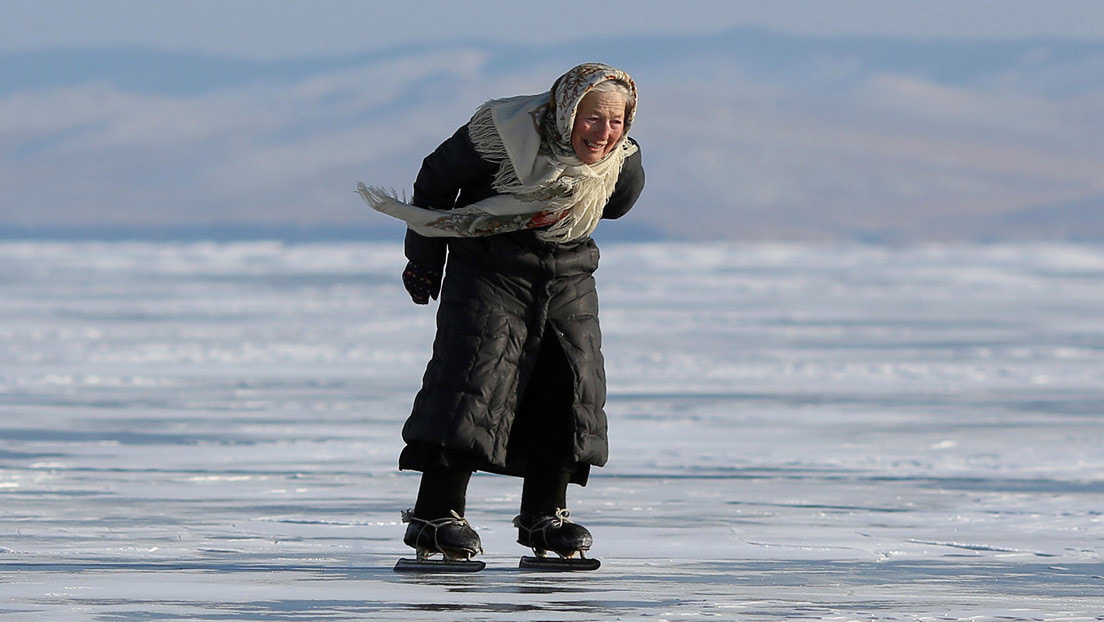 Liubov Morejódova Yuri Novikov / Reuters Liubov Morejódova Yuri Novikov / Reuters Like the rest of the world, I've been making more use of Youtube now than ever. Here in Italy, it feels like we're at the point in the tunnel where you can see some light, but you've got no idea of how long it's going to take to get there. I'm grateful that I've been vaccinated and that I can get out and about a bit, but I'm still being cautious about heading out and about. As a result, I've been spending a lot of time (usually late nights), watching all kinds of content. This week, my obsession has been the German DW channel's documentaries. Having already devoured all kinds of content, I was looking for something that treat my untamed wanderlust. Trawling through their videos, I found that one in particular, ticked off another box on my obsessions list; Russia. There's a beautiful two part documentary called The Russians - an intimate journey through Russia which I think is worth your time. Not only for the snapshot it gives you of life in various parts of Russia, the world's biggest country, but for the mere fact that in part two you get to meet Baba Lyuba. If you ever wanted to know what a walking inspiration for studio Ghibili looks like, I URGE you to watch part two of the video (made by film maker Juri Rescheto) so that you can fall in love with Baba Lyuba of Lake Baikal. She is one of the most charasmatic people I've ever seen captured on film, and has the kind of spirit that will lift you up, even in this, one of the darkest times we have experienced as a collective. A must watch! I haven't decided if being an indiewriter is a dog's life or just awesome fun and an opportunity to get creative. Probably the latter.
Above are a series of quotes from The Eighties to give readers (like you) a taste of what you'll find in the book. When people think about the eighties they make the mistake of simplifying things. They picture fluorescent colors, lots of hair gel and rampant consumerism. They think of rubber bracelets, vinyl gloves and about frat party culture.
They think the shinier aspects of the eighties rendered it a lightweight and superficial time. But if you lived through that decade, or really know it well, you’ll know that the eighties was anything but. You’ll know that the eighties was a desire for change. Driving that were all kinds of incredible innovations and changes to the way we lived. Musically, these changes ushered in a complete revolution in sound. Technology changed not only how music could be created, but how it could be heard. New synthesisers, new genres and new voices allowed youth culture to finally break through in a way it never had before. In doing so it gave us one of the most varied decades in music- ever. And audiences were just as varied as youth culture took its place beside the establishment. Absolutely any chart you look at from any week between 1981 and 1989 will point to how varied mainstream tastes became. It was the antithesis to today’s mainstream where a sameness has largely crept into the mainstream and where innovation is no longer prized. Many eighties acts took themselves seriously. They felt like they were in fast changing waters. And for every industry plant there were many more artists who had gripping back stories and the ability to tell powerful stories. The Eighties was perhaps the last decade when street culture really produced the generation’s most important artists, regardless of their genre. Public Enemy, Madonna, George Michael, Beastie Boys, Talking Heads, The Smiths, REM, Run DMC… the list is endless. It was the last time that self belief, street smarts and a good look could at least get you a foot in the door. What you accomplished once you were in depended on you and the team you had around you. That’s the spirit behind my book The Eighties. Alekzandr- the Vinyl Tiger - wasn’t any one thing. He modelled but wasn’t a model. He danced but wasn’t a dancer. And eventually he sang even though he could barely hit a note. Yet, through sheer hard work and chutzpah, he never let up on his quest to to become a pop star, despite his failings and limitations. The Eighties is Alekzandr’s story set against the backdrop of the decade and all its challenges. Partly a celebrity bio, it is a reminder of what it takes to make it when you’ve only got your self belief to rely on. The Eighties is available in paperback and on Kindle/Kindle unlimited. It’s been a week!
I’ve been busy prepping The Eighties for release and making tshirts for this year’s pride March in Rome. And working my actual paid job. the tshirts became a tradition a couple of years ago when a bunch of my friends, most of whom live in the same part of Rome, decided we needed to have a bit more fun with Pride and represent our part of town which is kind of… um… edgy by Rome standards. Rome has eased some COVID19 restrictions but whether there’s an actual march that takes place is still up in the air. If it goes ahead expect to see lots of posts on social media next weekend. Happy pride if you’re able to celebrate it wherever you are. Things have changed now.
More and more LGBTQI artists are breaking out of the niche and going wide. We need only look at Lil Nas and how he’s expressing himself on his own terms (and on a pole) and clocking up the hits as he does it for proof. But pop culture junkies of the eighties and nineties that wanted a bit more Queer in their diets often had to do a fair bit of projecting or reading between the lines to find it. It wasn’t all Bravo channels and Queer eyes for straight eyes back then. The queer community and its allies really battled to make headway at a time when identifying as anything other than straight wasn’t cause for celebration. It’s a shame more artists weren’t free to be themselves back then. But that is what gave me the idea to write Vinyl Tiger in the first place. Alekzandr - the Vinyl Tiger - is one part (my) alter ego and the rest liberal dashes of the greatest artists that emerged from that era. I thought it would be really cool to reimagine what pop could’ve looked like if Alekzandr had existed (even if he wasn’t a particularly good singer or natural musician). Imagining all of that also meant taking a bit of a risk and writing a story that is part novel and part fake celebrity biography. At times it mixes and merges and you have to wade through what’s PR, what’s tabloid and what’s “real”. The Second Edition of Vinyl Tiger explores Alekzandr’s life on and off stage over three decades, and is full of pop culture references. The Eighties (volume 1 of the Vinyl Tiger second edition) is already available for preorder on Amazon Kindle and will ship on the 21st June. The Nineties and The Noughties will be arriving shortly. Vinyl Tiger is pop fiction. So go ahead and download a decade. Back in 2015 I set out to write and publish my own #indie novel - Vinyl Tiger.
Pretty much anyone who has gone down that route will tell you the same thing about their first time self publishing. That it was exciting, nerve racking and a huge learning curve full of mistakes, I mean, milestones. It was no different for me. I made mistake after mistake "learning on the job" but I was also quite humbled by the huge support I received for my little indie project. But even after receiving complementary reviews and reasonably good interest, something wasn't sitting right with me. I of course just continued to write, watching as we, as a collective, grappled with huge cultural and social reckonings. At its heart, Vinyl Tiger is principally a story about popular culture - and the lack of LGBTQ icons in the eighties and nineties. Since then of course, we've made great strides; LGBTQ artists are breaking down barriers, movements like #metoo have provoked fundamental shifts and "identity" has never been part of the conversation as much as it is today. Knowing all of this, a seed planted itself in my mind, wondering whether my little indie novel needed to somehow reflect this. Six years on, with another novel in the can, I made another realisation; that my writing style has changed. As with any skill, the more you do something, the more you bring to it. Writing is no exception. When I originally wrote my novel, I knew I did all the things an #indie writer is supposed to; tap into the wisdom of BETA readers, hire a great editor, and be prepared to do revision after revision. But now, with thousands of extra hours of practice, and thousands of hours of even more reading, I knew I was capable of doing better. I suppose I could've let things lie and just moved onto another project, but the freedom of self publishing and my belief in the original story led me to revisit it with fresh eyes. Ruthless editing, rewrites and new bouts of research to revisit some of the references in the book took up weeks and months of my time, forcing me to look at my work critically. The upside was that doing so also gave me the opportunity to fall in love with the story again (and to indulge in some eighties and nineties nostalgia; the perfect tonic for COVID and all its restrictions). So, here I am again, almost six years later, with a story that I can stand behind, and the knowledge that it's now in the best shape that I'm capable of putting it in. What happens from here, I'm not sure. But that's the other great thing about self publishing. The parametres of a successful project boil down to the author. In my case, I want to know that I've written a great story that people will enjoy and that I can take some comfort in knowing that I gave it my all. Anything else is a bonus. |
Dave
|
|
|
Dave Di Vito is a writer, teacher and former curator.He's also the author of the Vinyl Tiger series and Replace The Sky.
For information about upcoming writing projects subscribe to the mailing list. Dave hates SPAM so he won't trouble you with any of his own. He promises. |
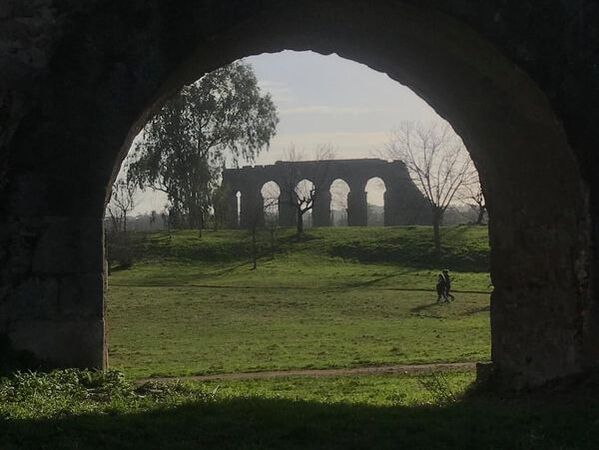
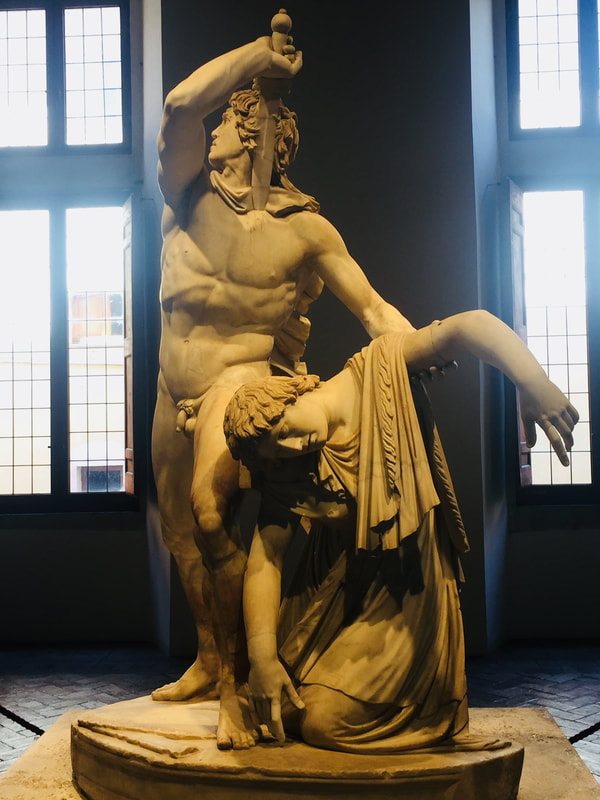
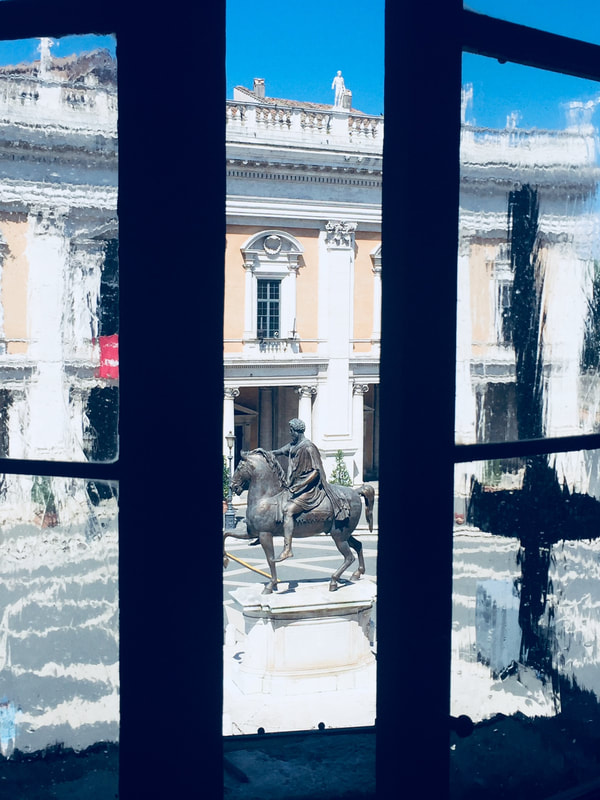
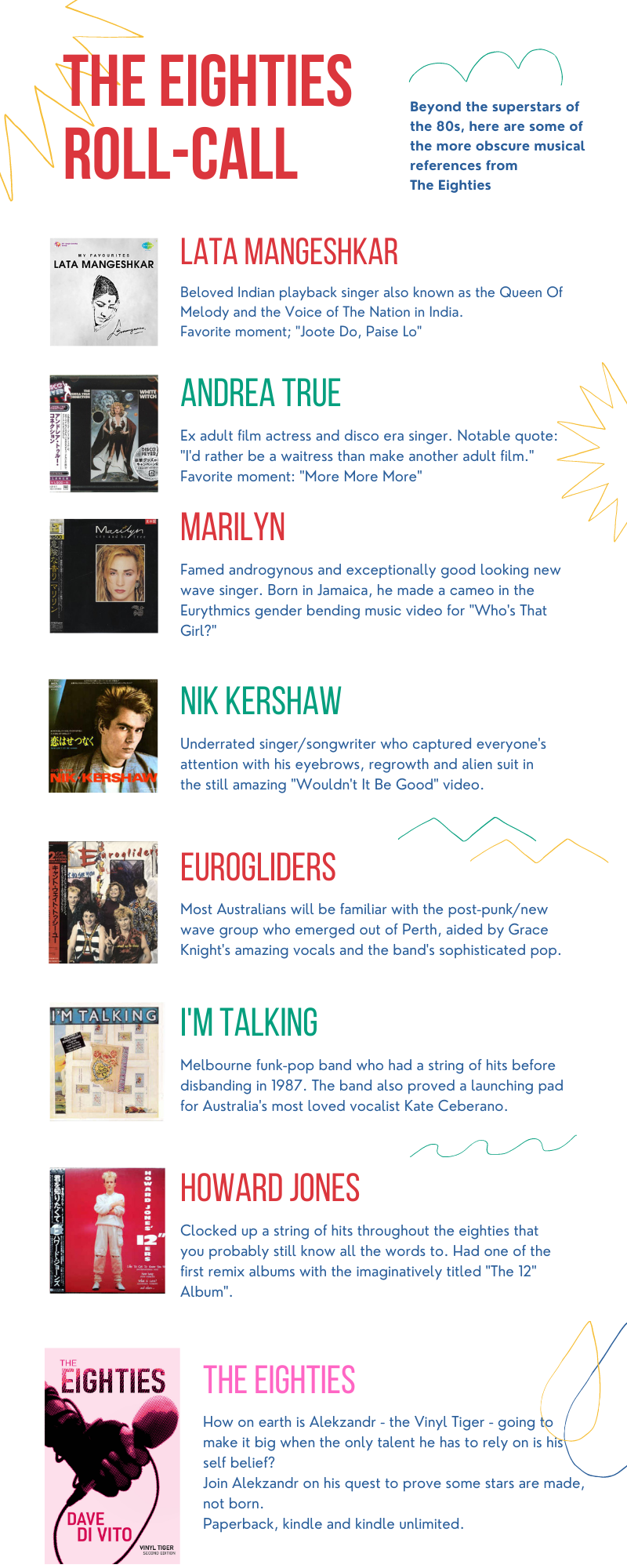
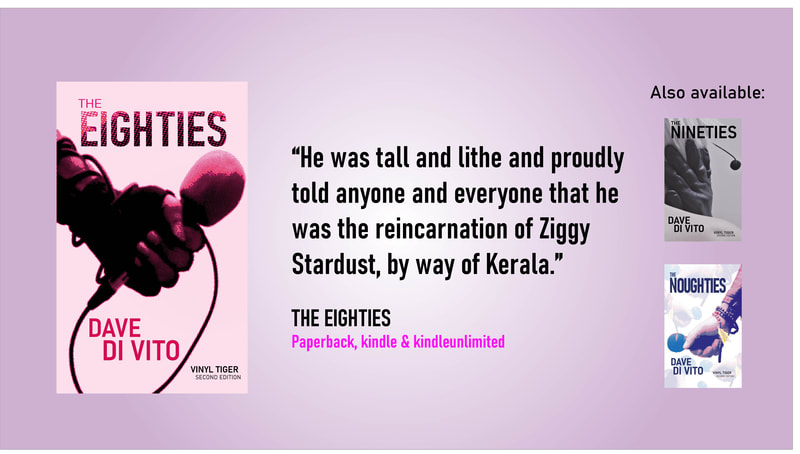
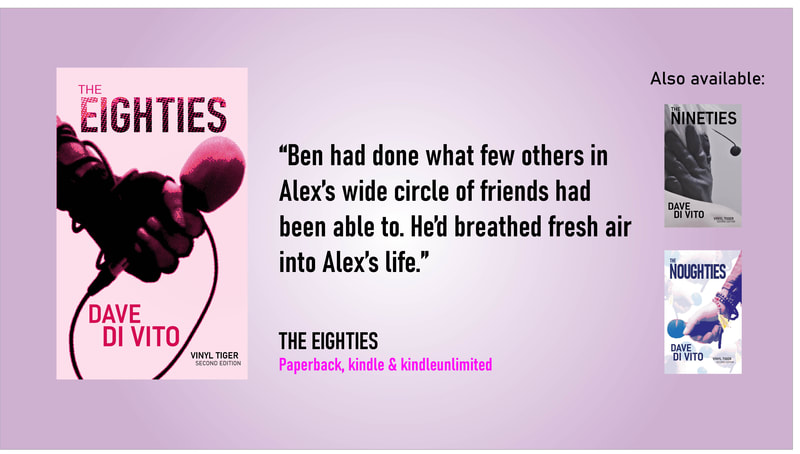
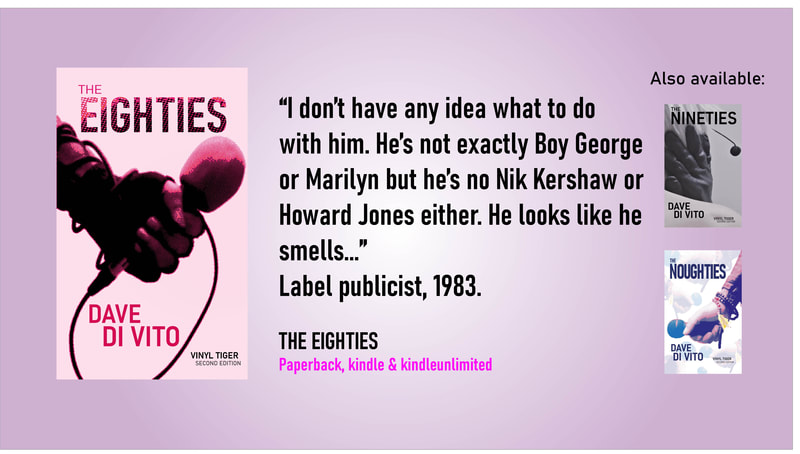
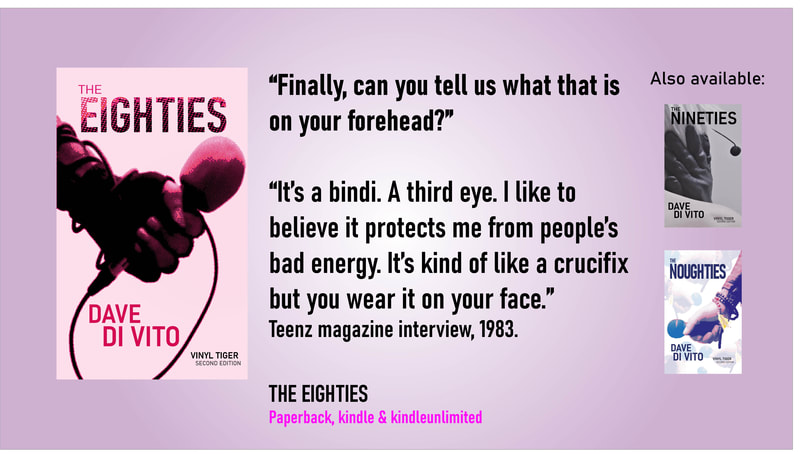
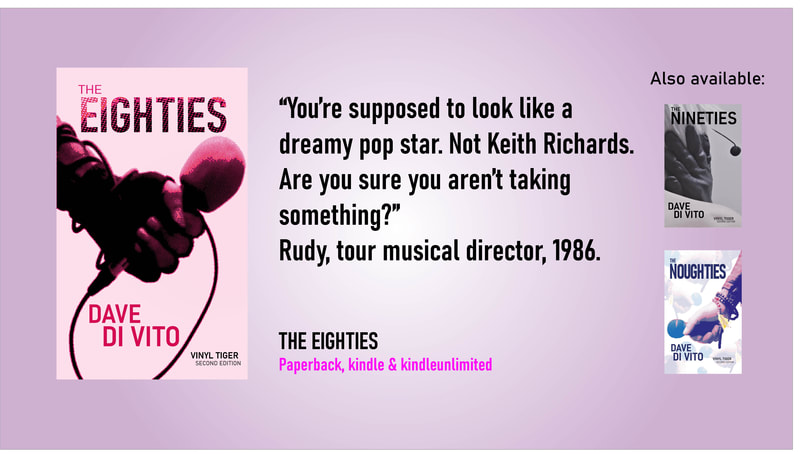
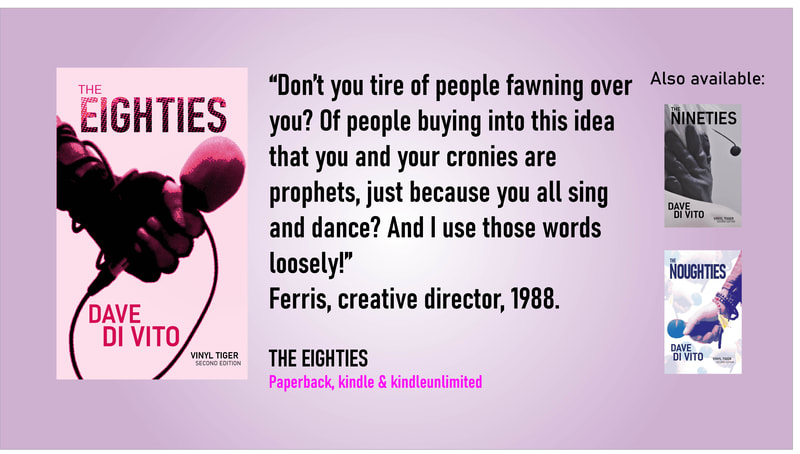
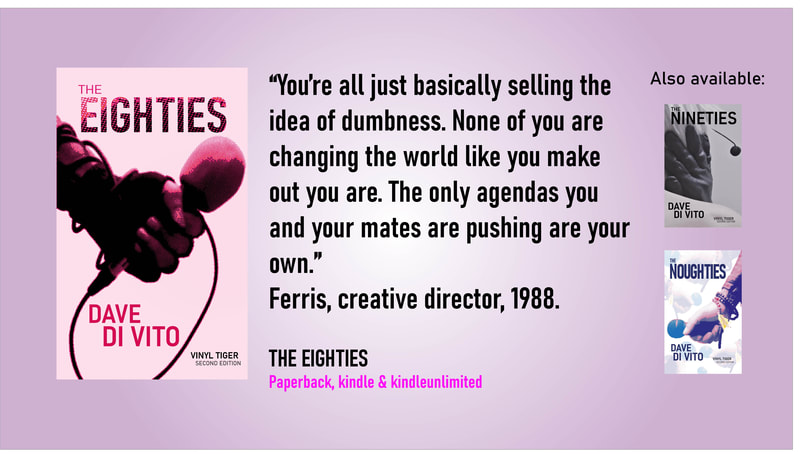
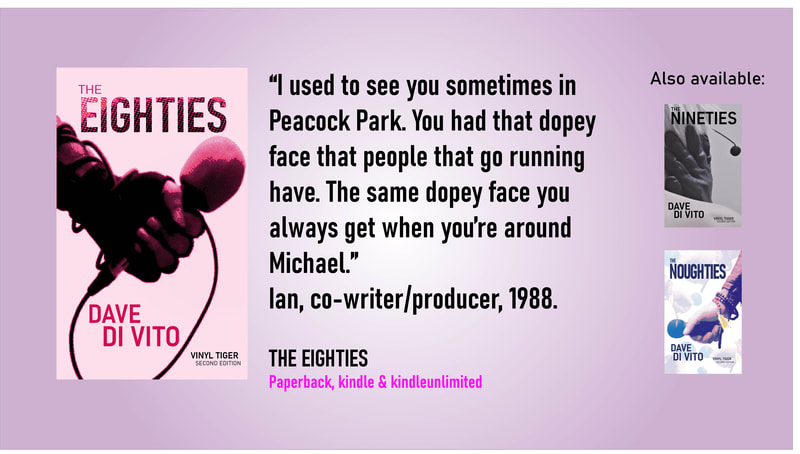
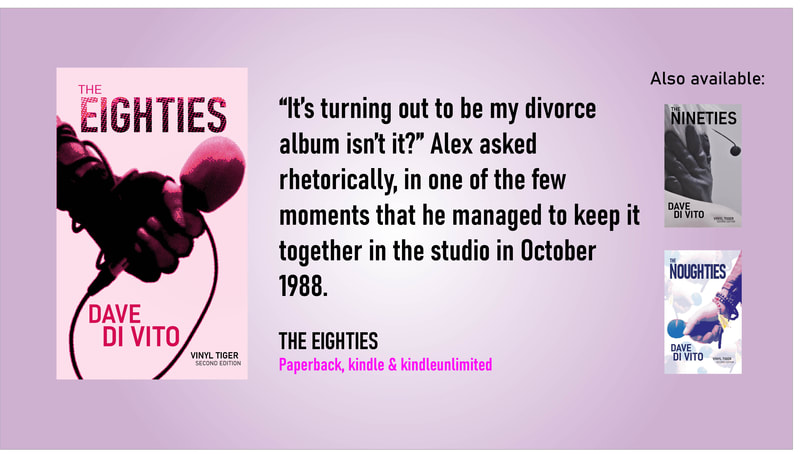


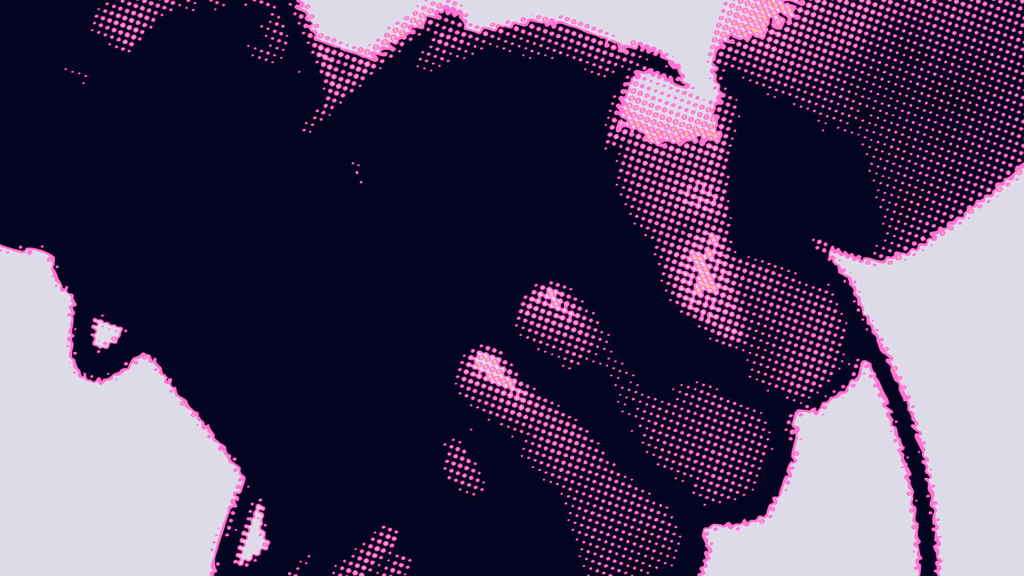
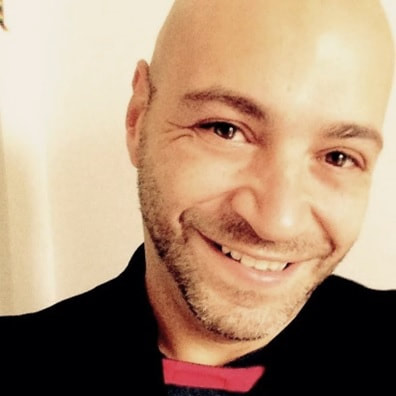
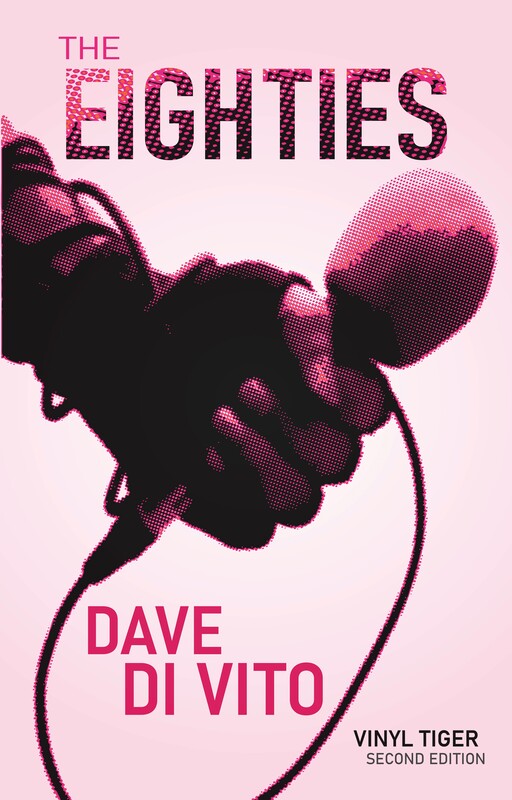
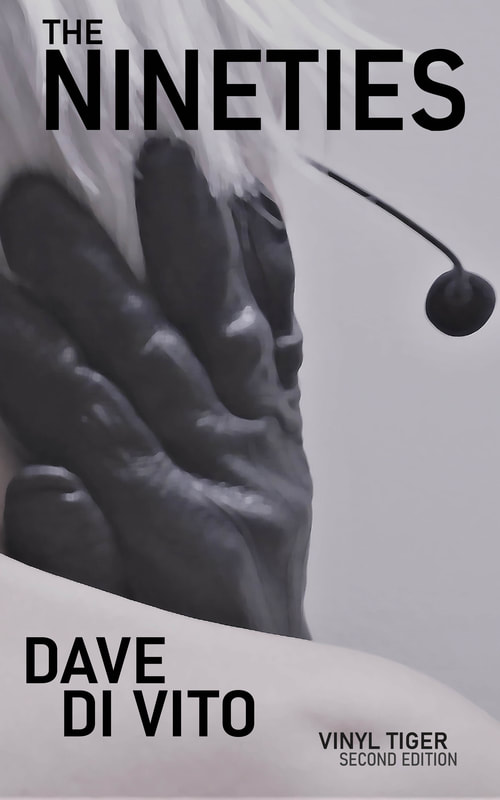
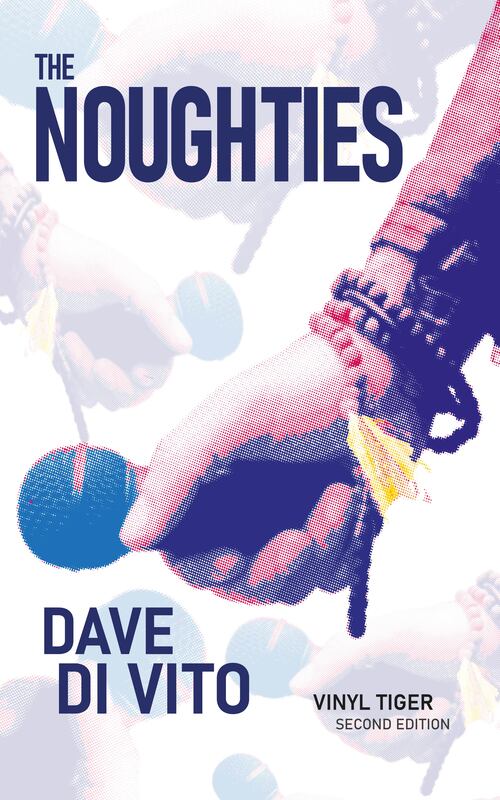
 RSS Feed
RSS Feed